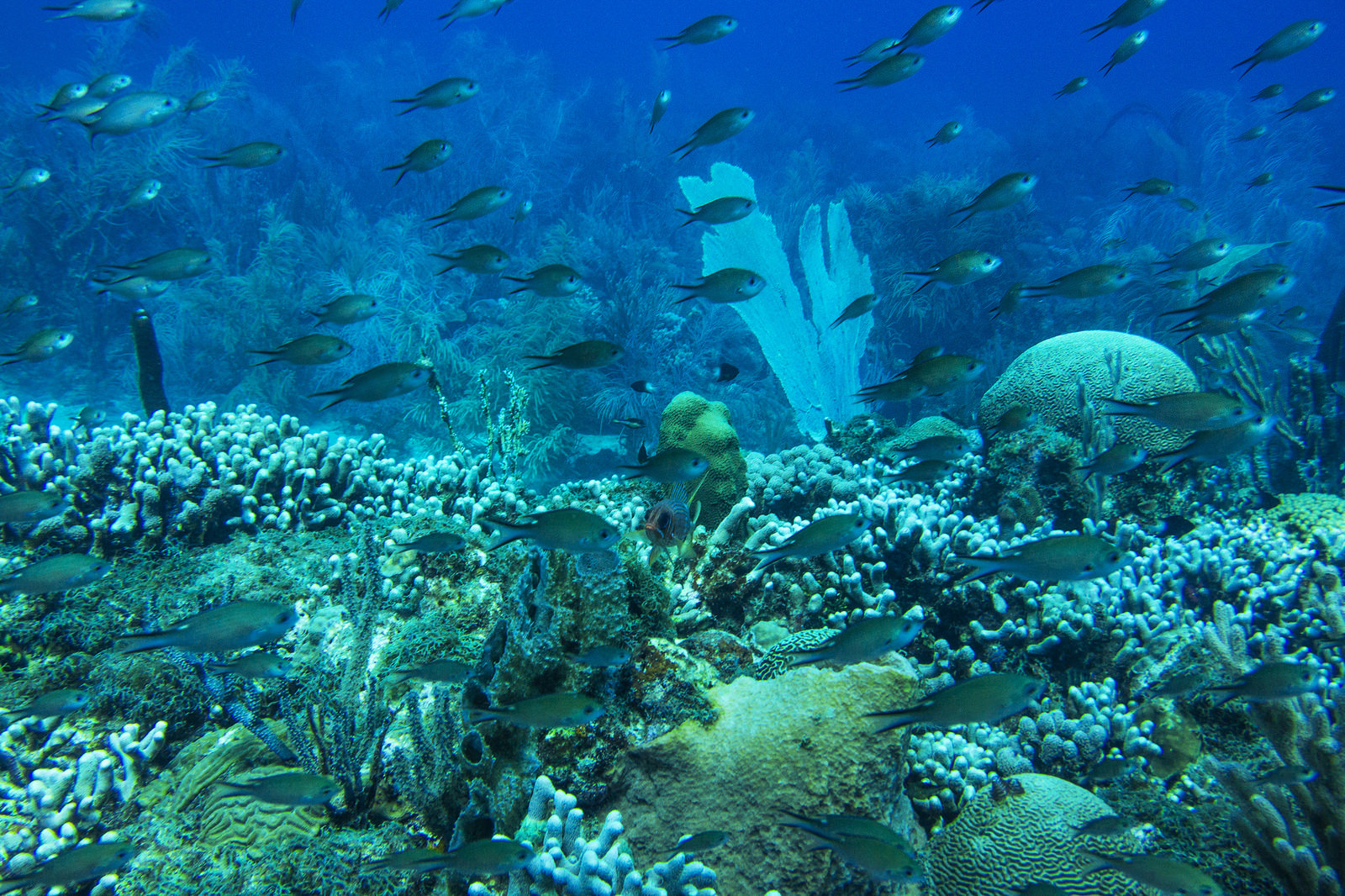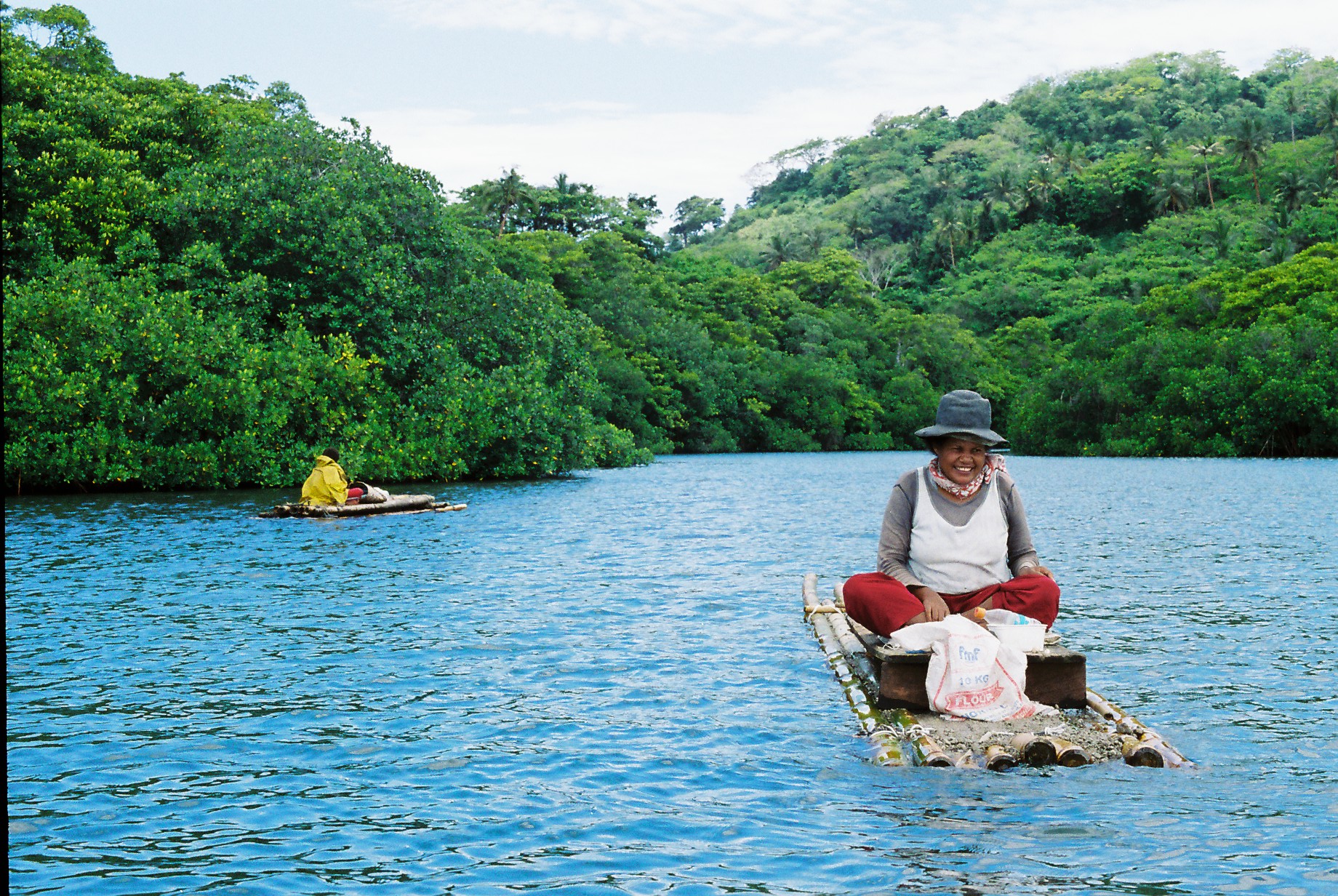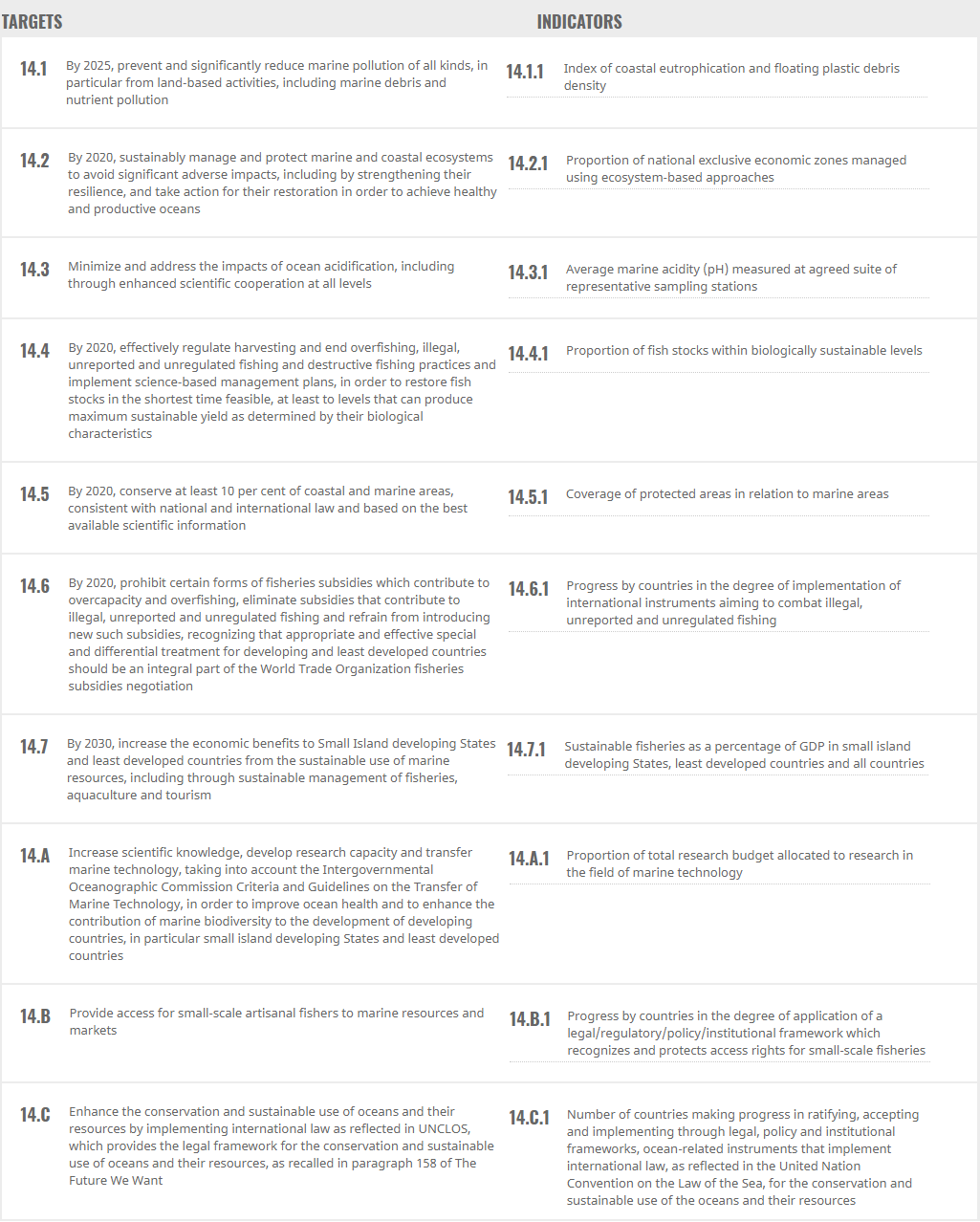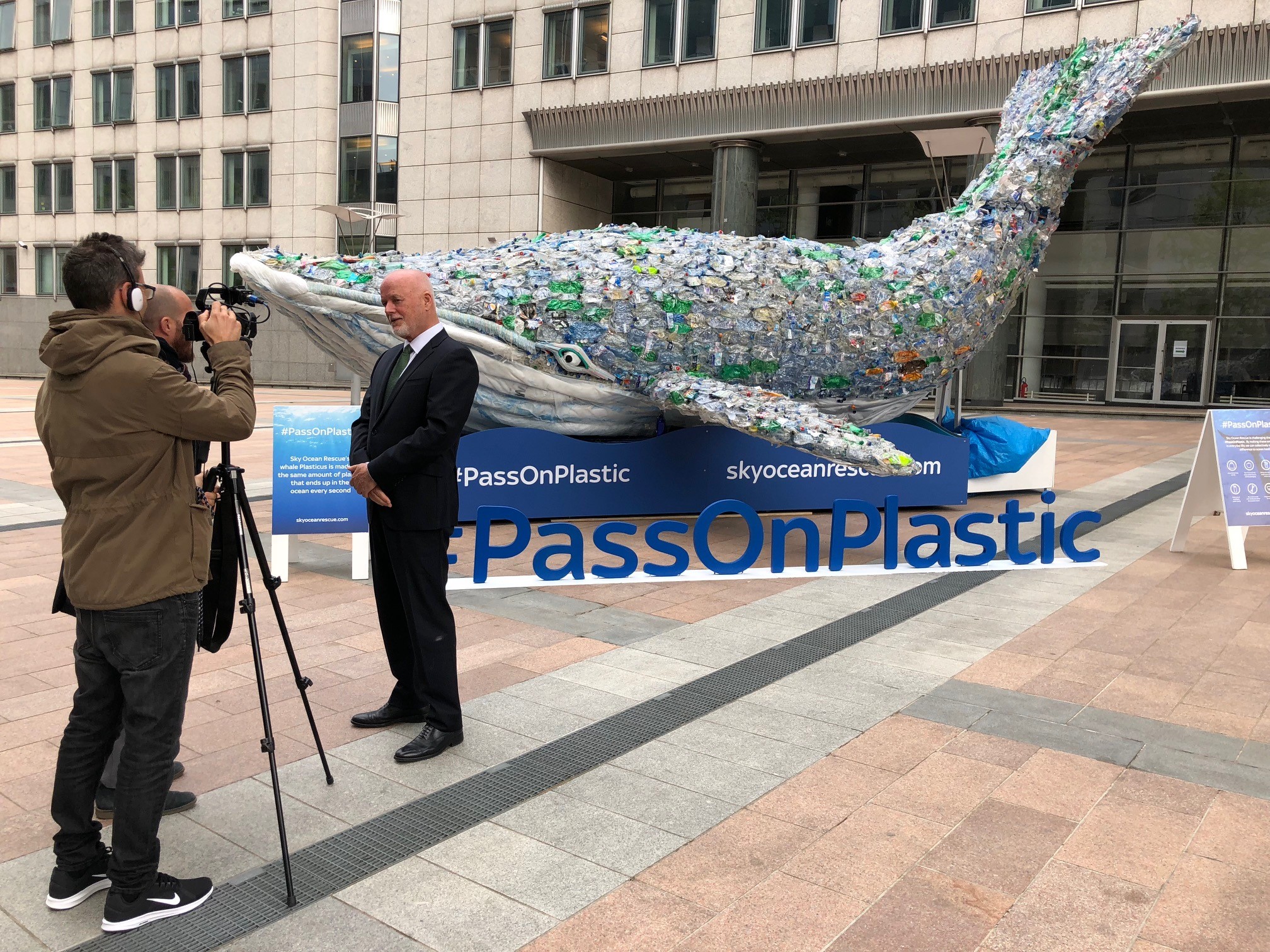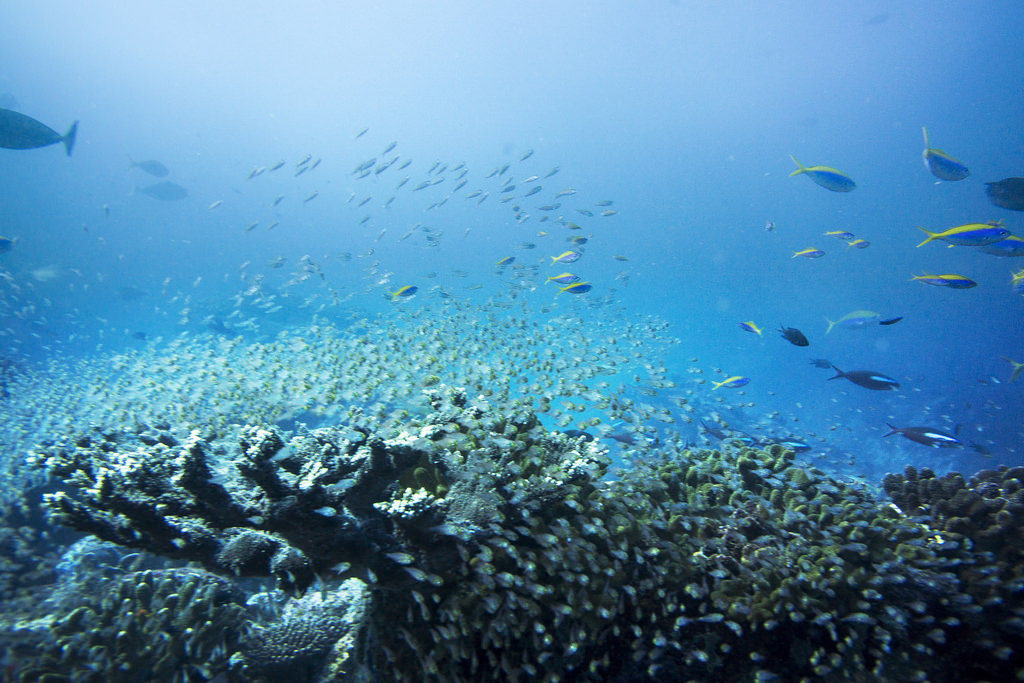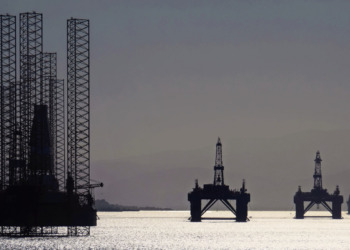We live at a time when accumulated human activity has begun changing the fundament within which we exist. Thanks to our greenhouse gas emissions, the atmosphere is warming and with it the Ocean. These same greenhouse gases are also making the oceans more acidic. Between warming and acidification, our actions are killing off coral reefs, driving species away from overheating tropical waters, causing Ocean deoxygenation and rising sea levels.
The pollution of the oceans is reaching unconscionable levels, including not only what we can see in massive floating rafts of plastic and littered beaches, but also what science is showing us in the permutation of marine microfauna. The basic foundation of all life in the Ocean, the microfauna is threatened by the micro-plastics and micro-fibers flowing into our seas via the daily global wash of cosmetics and synthetic clothing. At the same time, fish stocks are under huge pressure from overfishing and widespread illegal fishing practices. The Ocean is truly suffering a multipronged attack.
The good news is that we now have a global plan to restore respect and balance to humanity’s relationship with the Ocean: Sustainable Development Goal (SDG) 14 and its pledge to conserve and sustainably use the Ocean’s resources. It is this balance between protection and production that we must nurture as a global community; after all we do not want to kill the goose that lays the golden egg.
In the photo: Lady fishing in Cakaudrove coast in Fiji. Photo Credit: Peter Thomson / UN
When the 17 SDGs were universally adopted by all 193 member States of the United Nations in September 2015, this represented the culmination of more than 20 years of work, beginning with the first Rio Earth Summit in 1992, that can be traced even further back to the 1972 United Nations Conference on the Human Environment in Stockholm. The “Future We Want” outcome document of the 2012 United Nations Conference on Sustainable Development, or Rio+20, had supported the creation of both the SDGs and a new mechanism designed to review them, the High Level Political Forum (HLPF). To maintain the momentum generated in 2015, the HLPF convenes each year at the UN Headquarters in New York to review a different set of SDGs. With many of the key targets set to be reached by 2020, there is no time to lose.
Ten targets for restoring Ocean health
One SDG is particularly important to me, coming as I do from a Big Ocean State in the Pacific – SDG 14, to “Conserve and sustainably use the oceans, seas and marine resources for sustainable development.” I was therefore deeply honored when, in September 2017, UN Secretary-General António Guterres appointed me to be his Special Envoy for the Ocean, charged with galvanizing the efforts of states and other partners around the world to ensure the implementation of SDG 14 and its ten specific targets.
Table 1. Each of the ten targets of SDG 14 has an indicator to help us assess progress.
Our Ocean, Our Future
In 2017, the HLPF reviewed SDG 14 for the first time, and, in my capacity then as President of the UN General Assembly, I was instrumental in organizing the first United Nations Ocean Conference from 5 to 9 June. Of course, we picked those dates so we could celebrate World Oceans Day together on 8 June. The theme of the Conference was “Our Oceans, Our Future: partnering for the implementation of Sustainable Development Goal 14” and I am grateful to my own Government, Fiji, and to the Government of Sweden for co-hosting this unprecedented event, which attracted over six thousand participants from Governments, the UN system, intergovernmental organizations (IGOs), civil society, the scientific community, the business sector and other relevant stakeholders. As I said at the Conference, “if we want a secure future for our species on this planet, we have to act now on the health of the Ocean and on climate change.” 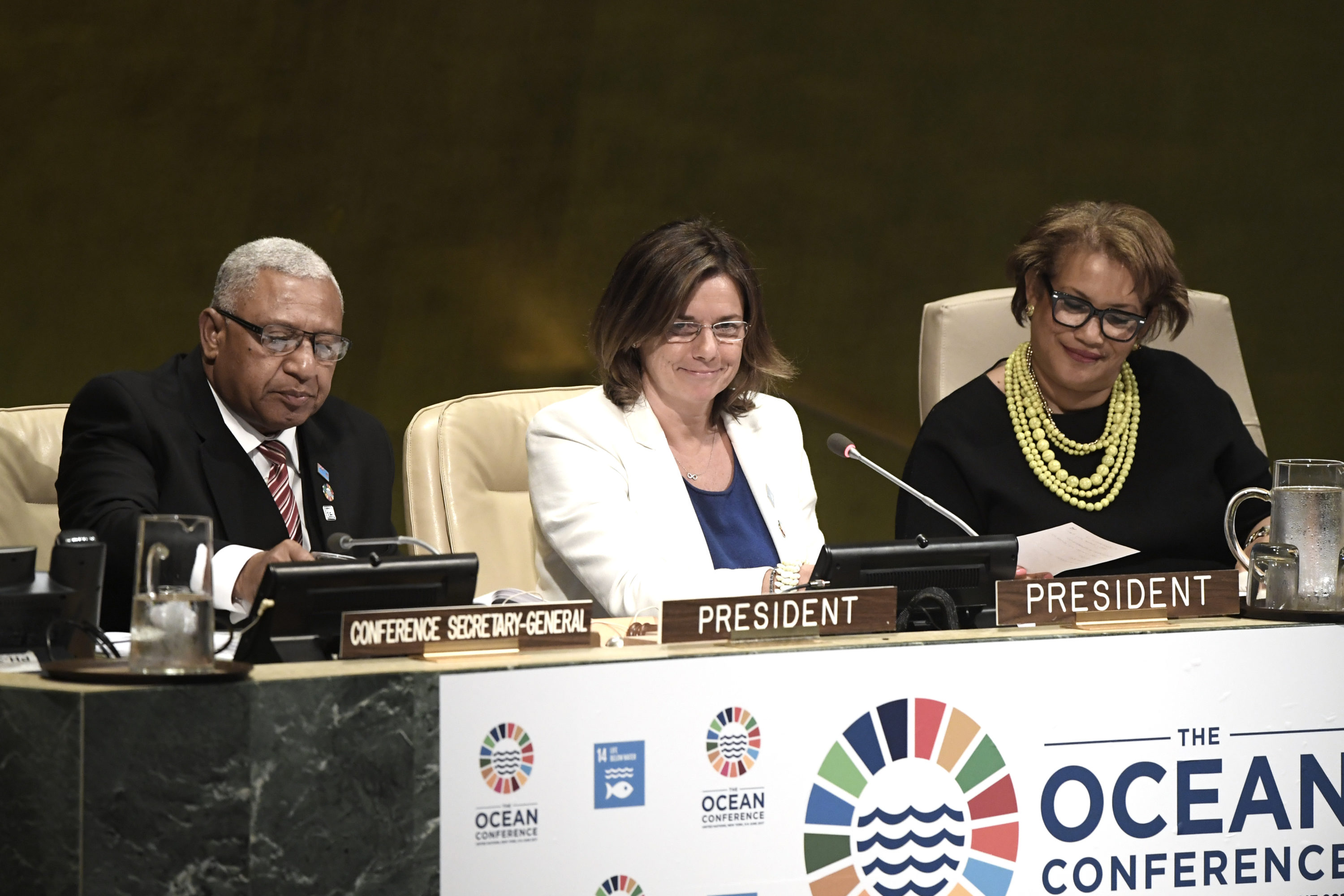
In the photo: General Assembly Seventy-first session United Nations Conference to Support the Implementation of Sustainable Development Goal 14: Conserve and sustainably use the oceans, seas and marine resources for sustainable development, 5th plenary meeting. Credits: UN Photo/Evan Schneider
The Conference raised global consciousness on Ocean issues, and produced strong ambitious outcomes, including a political declaration “Our Ocean, Our Future: Call for Action” and over 1,400 voluntary commitments from Governments, the UN system, IGOs, the Major Groups and other stakeholders aimed at advancing implementation of SDG 14 and related targets. As these voluntary commitments are the key to achieving SDG 14 in the coming years, monitoring their progress is critical.
To follow up on the implementation of these voluntary commitments, which continue to grow in number, and facilitate collaboration and networking amongst different actors in support of SDG 14, the UN has launched nine thematic multi-stakeholder Communities of Ocean Action, which are open to anyone who has registered a voluntary commitment related to SDG14.
| Table 2: The nine Communities of Ocean Action: |
| 1. Mangroves |
| 2. Coral reefs |
| 3. Ocean acidification |
| 4. Marine and coastal ecosystems management |
| 5. Sustainable fisheries |
| 6. Marine pollution |
| 7. Sustainable blue economy |
| 8. Scientific knowledge, research capacity development and transfer of marine technology |
| 9. Implementation of international law as reflected in the United Nations Convention on the Law of the Sea |
Each Community is spearheaded by two focal points and supported by both my office and the UN Department of Economic and Social Affairs. The Communities are expected to achieve the following:
- Assessment on the progress of registered voluntary commitments in the areas related to the Community of Ocean Action
- Increase registrations of new voluntary commitments
- Increase multi-stakeholder interest and engagement in the Community of Ocean Action and in the follow-up to the UN Ocean Conference.
Everyone can get on board by registering new commitments, providing updates on current ones, joining a Community of Ocean Action, sharing knowledge, and/or signing up to receive the Ocean Action Newsletter.
Given the success of the Conference in pushing the SDG 14 agenda, a second United Nations Oceans Conference is proposed for 2020, which the Government of Portugal has kindly offered to host in Lisbon, in partnership with the Government of Kenya. Four of the ten targets of SDG 14 mature in 2020, and the majority of the voluntary commitments are also pledged for completion by that year, so this would be an ideal opportunity to assess progress, as well as to launch the Decade of Ocean Science for Sustainable Development 2021-2030, which will be led by UNESCO’s Intergovernmental Oceanographic Commission.
Mobilizing Ocean Action
Global consciousness is rallying around the need for humanity to transform its relationship with the Ocean. The watchword of Climate Action as the great calling of the 21st Century is now joined by Ocean Action, as more people realize that tackling one without the other is self-defeating for our own future and that of all life on Earth.
As a result of The Ocean Conference, a huge array of voluntary commitments is now being implemented, and institutions, organizations, corporations and countries are mainstreaming Ocean Action into their plans and activities. The Commonwealth is implementing a Blue Charter; the Fijian Presidency of COP23 is launching an Ocean Pathway into the work of the UNFCCC. Canada, the host of the 2018 G7 Summit, is putting forward an Ocean plastics pledge and other Ocean Action measures. The growing list of global initiatives demonstrates a new appreciation of humanity’s responsibility and dependence on Ocean’s health.
I am committed to carrying the momentum of The Ocean Conference forward and to continue fighting the decline of our Ocean. Like a trident held proudly by Neptune, I see my work as having three prongs. The first is to pursue and promote the voluntary commitments and Communities of Ocean Action described above. The second is to work with UN-Oceans, the coordination body that gathers all UN entities related to Ocean affairs, to optimize the UN System’s support for the implementation of SDG 14. Thirdly, in collaboration with the World Economic Forum, we have created a group of influential thought leaders, called Friends of Ocean Action to drive outreach among the private sector, civil society, NGOs and the scientific community.
As a Pacific islander, I am particularly keen to support work that supports a sustainable blue economy, so vital to Big Ocean States and least developed countries. A sustainable blue economy seeks to promote essential economic development, social inclusion, and the preservation or improvement of livelihoods, while at the same time ensuring environmental sustainability of both the Ocean and coastal areas. At its core, it requires the decoupling of the socioeconomic development that stems from Ocean-related sectors from environmental and ecosystem degradation. I look forward to participating in the Sustainable Blue Economy Conference being hosted by the Government of Kenya in Nairobi this November.
Shipping is a vital sector in the Sustainable Blue Economy, responsible for about 2.5% of global greenhouse gas emissions as well as other pollutants that impact the health of coastal populations and marine ecosystems. It was therefore an important breakthrough when, in April this year, nations meeting at the International Maritime Organization (IMO) reached a milestone agreement on an initial strategy to reduce and eventually phase-out greenhouse gas emissions from global shipping, hailed by many as the ‘Paris Agreement for Shipping.’ This is an area where there has been ambiguity concerning national responsibility for carbon emissions and I strongly commend IMO for progressing towards a cleaner, greener shipping industry.
In the photo: The plastic whale Photo Credit: Daniel Friedlander of Sky News
Another topic prevalent in the news is the plethora of plastics, particularly micro-plastics and plastic fibers, that have entered the Ocean. While horrified by the scale of this problem, I am encouraged by strong new legislation being introduced in several countries and cities banning single use plastic bags, micro-beads in personal care products, and even plastic drinking straws, often in response to citizen campaigns. We are also working with industry, as we cannot deny the many benefits of plastic and so must incentivize greater rates of plastic recycling and reuse to deal with this modern-day scourge.
It is reassuring to see the strong interest and engagement already being show by the private sector through enhanced corporate ocean responsibility. Eleven major global corporations – jointly responsible for six million tons of plastic packaging every year – announced at the World Economic Forum in January that they will ensure all their packaging is reused, recycled or composted by 2025. These kinds of commitments can have a huge, rapid impact and set new market standards for others to follow.
Work has stepped up under the Community of Ocean Action charged with protecting and preserving coral reefs, with co-focal points Mr. Erik Solheim, Executive Director of UN Environment and Mr. Francis Staub, Coordinator of the International Coral Reef Initiative. Voluntary Commitments that have reported progress so far include: finalizing key standard operating procedures for monitoring Ocean acidification impacts on coral reef ecosystems; raising awareness among children about coral ecosystems and marine biodiversity functioning; and preparing regional analyses of coral reef status and trends under the Global Coral Reef Monitoring Network.
In the photo: Seychelles, adaptation solutions – A healthy coral reef near Praslin. Photo Credit: Kadir van Lohuizen / NOOR
In 2018, we are celebrating the International Year of the Reef, an opportunity to give increased visibility to problems and solutions related to these important ecosystems. This includes highlighting innovative new schemes for financing coral reef protection by governments and by the private sector, including green bonds, parametric insurance, impact investing and payment for ecosystem services. To assist this and other Ocean conservation work, the UNEP World Conservation Monitoring Centre recently launched Ocean+ Data, an online library to support informed decision-making.
Fishing is one area where informed decision-making is essential, but not always demonstrated. It is estimated that over US$23 billion worth of illegally caught and sold fish makes its way to our tables every year. In the fight against this phenomenon, surely the time has come for us to end all fisheries subsidies that support IUU fishing? There is a crucial opportunity to take a firm decision on this at the WTO in 2019 that should not be missed.
As an optimist, I will end on a positive note. There has been strong progress towards meeting target 14.5, to conserve at least 10% of the Ocean by 2020. Just in the last 12 months, another 6.6 million km2 has been added to the world’s network of marine protected areas (MPAs), with new reserves being designated by Brazil, Cambodia, Chile, the Cook Islands, the Seychelles and the UK, among others. This brings the total area covered by MPA to about 23 million km2, or 7.26% of the Ocean – a ten-fold increase since 2000. At this rate, we are on track to exceed the 2020 target.
Future progress on SDG 14 depends on us all: changing our patterns of production and consumption and being thoughtful in our choices; seeking new knowledge and using it to improve policies; making our voices heard so that we protect more of our common Ocean heritage and progress towards sustainability. I invite everyone to join us in this vital mission for our Ocean and our future.
Author Bio: Peter Thomson was appointed the UN Secretary-General’s Special Envoy for the Ocean in September 2017. Prior to that he was president of the 71st session of the UN General Assembly, having served as Fiji’s permanent representative to the UN in New York since 2010. In 2013, he chaired the Group of 77 and China. He was President of the Council and Assembly of the International Seabed Authority. In 2014, he was President of the Executive Board of UNDP/UNFPA/UNOPS. From 1972 to 1987, Mr. Thomson worked for the Government of Fiji on rural development and foreign affairs.
Editors Note: The opinions expressed here by Impakter.com columnists are their own, not those of Impakter.com Featured Image Credit: Unep


